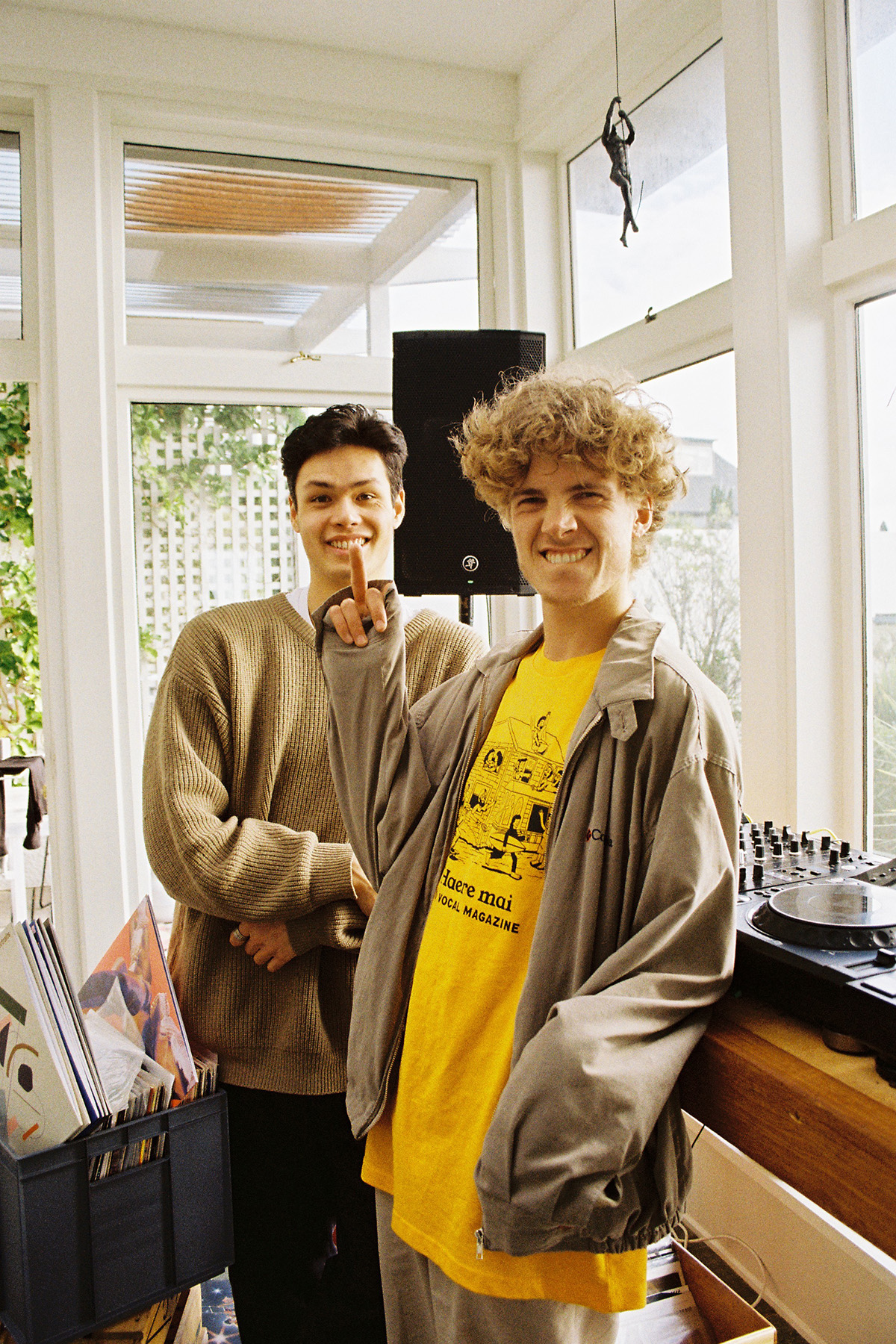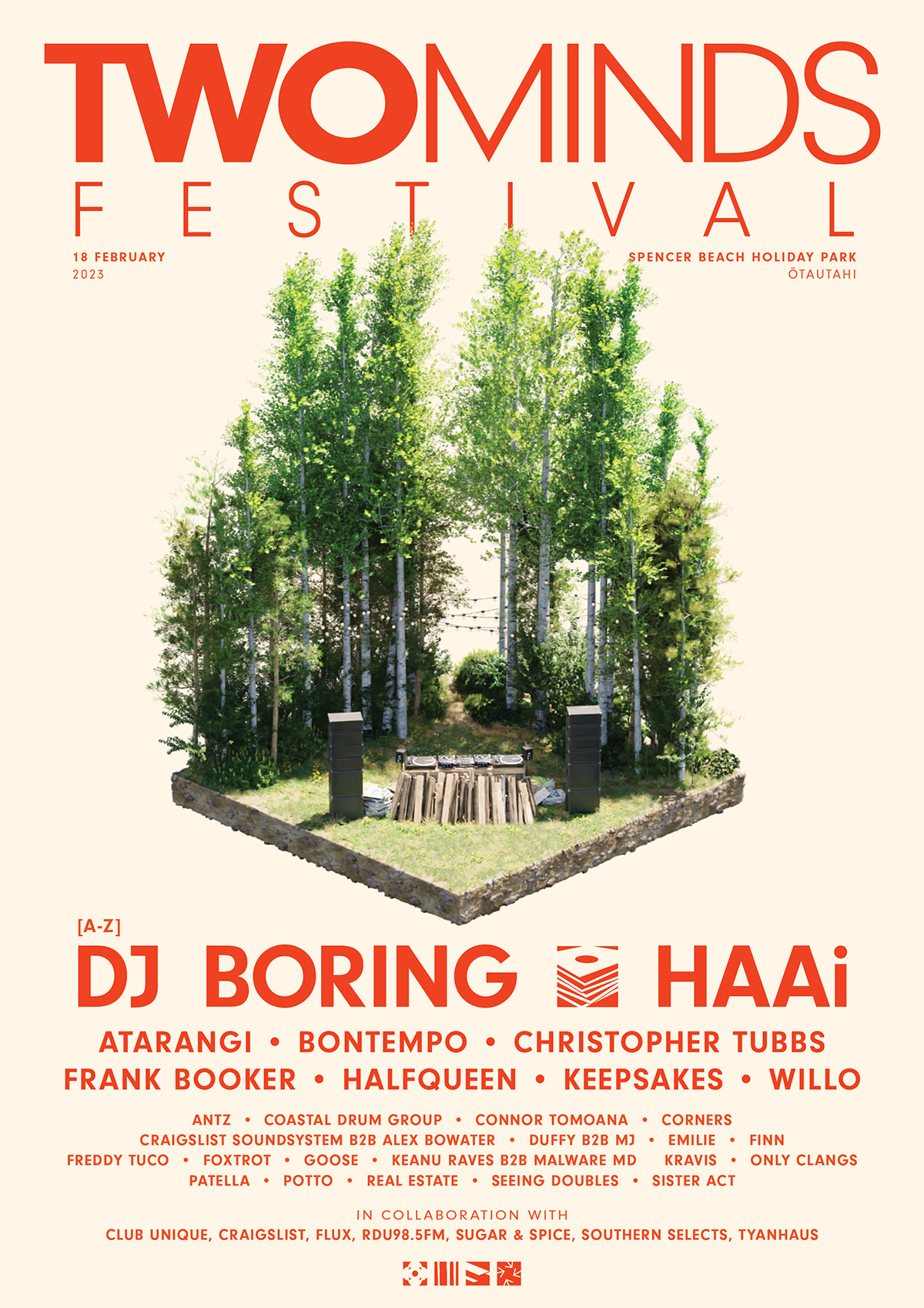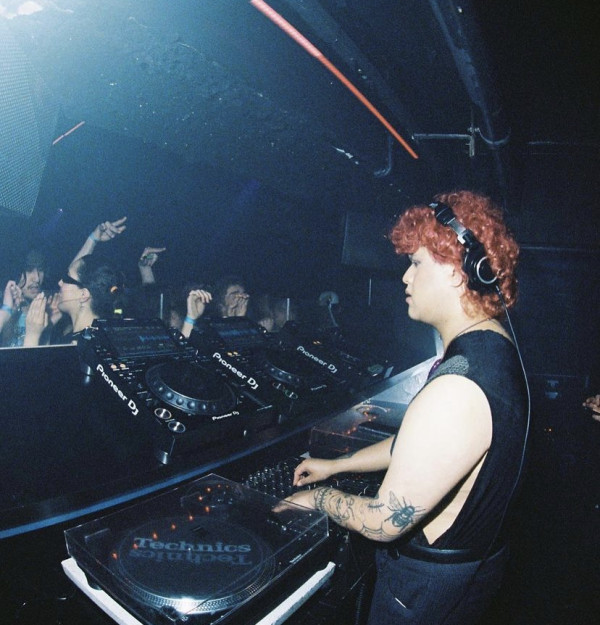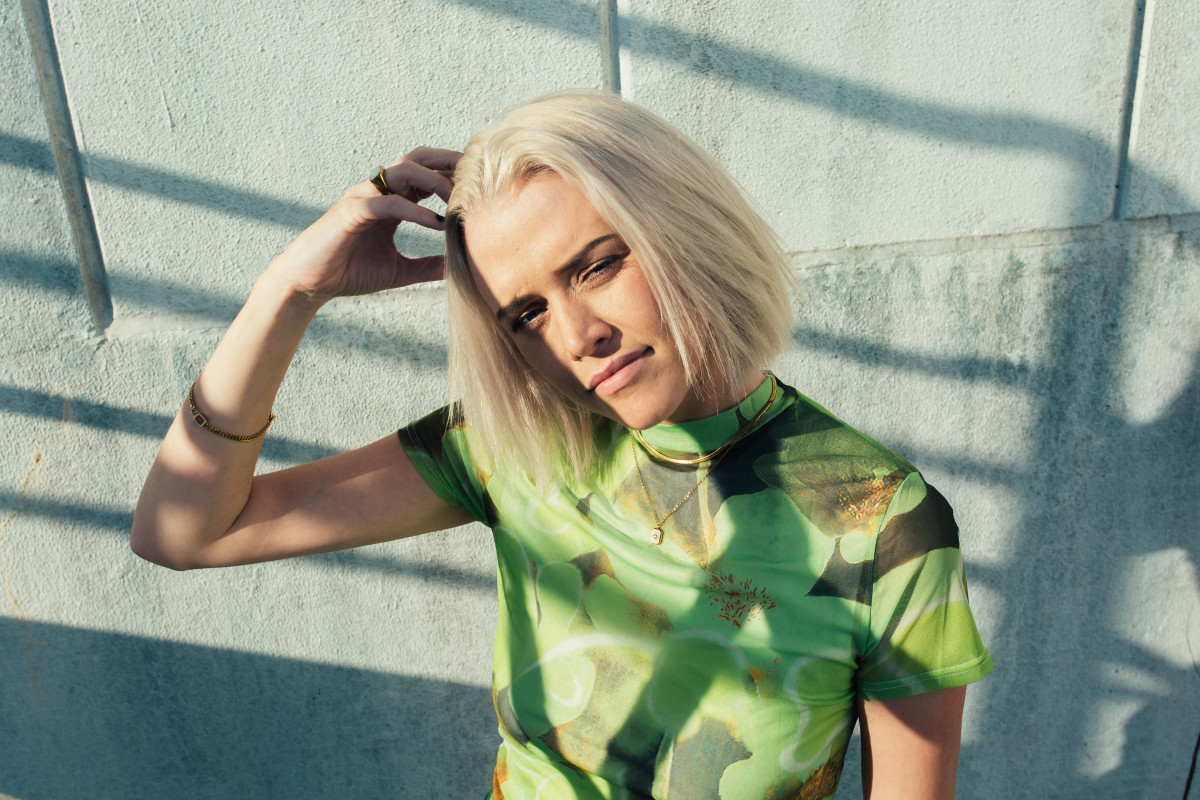Correction: A previous version of this story incorrectly stated the lineup is over 50% non male, over 40% queer and 22% people of colour. This is the diversity breakdown of the top two tiers of the lineup.
When Corban Tupou moved to Christchurch his parents warned him to be careful when he went out at night.
Not because of the city’s wild nightlife. But because he’s Māori and Pasifika.
“People have run into trouble in Christchurch for being part of a particular community that wasn’t the norm,” Corban says.
“It’s an issue Christchurch has had for a really long time.”
Corban’s friend, Dan Stewart, is queer. He says there’s an expectation to “dress straight” or “dress like a man” if he wants to go out on the main nightlife strip in Christchurch.
“There are pockets in Christchurch like Flux where none of those rules apply but there’s not enough of them,” Dan says.

Friends Corban Tupou (left) and Dan Stewart are running a music festival to fuck up Christchurch’s conservatism. Photo: Supplied.
The friends say the city has a long-standing reputation for being overly white and conservative.
And they want to fuck that up.
Introducing TWOMINDS festival
Corban and Dan are organising an electronic dance music festival where the top two tiers of the lineup is over 50% non male, over 40% queer and 22% people of colour.

TWOMINDS festival lineup. Photo: Supplied.
It’ll feature 30 artists across 3 stages. It’s the first time the festival is taking place.
Corban and Dan say they are trying to change the culture of their city the only way they know how by bringing the groups most under-represented in Christchurch right to the front.
Unlike other parts of the city where you’re expected to wear a button up shirt, tidy trousers and boots - dressing outlandishly and being overtly yourself, whatever that may be is heavily encouraged, Dan says.
‘I was hesitant to perform in Christchurch’

DJ ATARANGI wants to see more diversity in festival lineups. Photo credit: Jemia Sutton
DJ ATARANGI has always been unsure about not only performing in Christchurch but just existing as a brown, queer, non-binary person in the South Island.
“I’ve got friends who have moved up to Auckland because of how shit it is to be queer in Christchurch, so there’s always been a bit of hesitancy to play there,” they say.
“But seeing people like Half Queen on the lineup with me, who is outwardly queer too, and just seeing how the festival is trying to subvert the norm, which doesn’t happen enough in places like Christchurch, it was quite an honour to be part of that, to be honest.”
It’s not just Christchurch - the music industry has a diversity problem
After large festivals like Bay Dreams and Soundsplash got called out for their lineup’s lack of diversity in 2020, more festivals in New Zealand are making a conscious effort to be more representative.
At Soundsplash 2020, five out of 35 acts included at least one non-male artist - that’s 14%. Bay Dreams 2020 only saw 11% of acts include at least one non-male artist.
In 2021, Bay Dreams’ lineup was equal part female and male acts.
ATARANGI says there's a long way to go when it comes to having queer and ethnically diverse music festival lineups, but having people from those communities on stage is the best way to get more diverse people into the music scene.
“It’s kind of insane to think about how being an outwardly queer DJ … you are going to inevitably become someone’s beacon to knowing this is a space they can enter too.
“But it’s a really cool thought to know me having fun and playing stupid music could potentially be a driver for someone else to do the same thing.”

DJ WILLO says watching other female DJs take up space is what inspired her to do the same. Photo Credit: Xinger Xan.
DJ WILLO, who is also playing at TWOMINDS, says it’s important for her to look out for diversity in any gig they do because they know how inspiring it is to see yourself represented on stage.
One of WILLO’s biggest inspirations is Australian electronic producer and DJ HAAi, who is headlining TWOMINDS.
She says the representation HAAi has brought for female DJs in the music scene has inspired more female DJs like her to take up space.
WILLO says being told she has been that inspiration to other women wanting to get into DJ-ing is a feeling she still hasn’t gotten used to.
“It shocked me. But that feeling is my favourite part of the job - just connecting with people and getting people to realise they can do it too.”
More stories:
What it's really like being a female tradie in NZ
Brooke Thompson is one of just only 2% of female electricians in Aotearoa.
This is why mosquitoes love some people more than others
It's not personal.
Asking strangers personal questions in Auckland
“I’m afraid of never having lived”